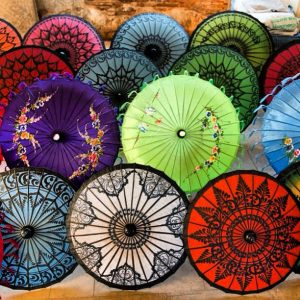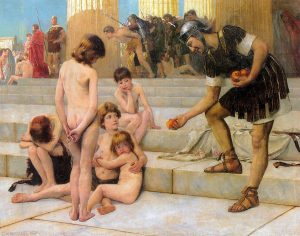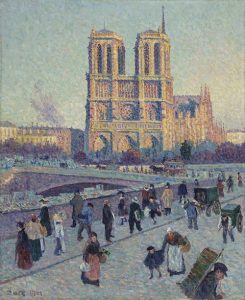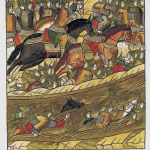President Donald Trump is now focusing all his attention on the Middle East, and this is causing the rest of the world to look there too. It’s also causing Middle Eastern nations to look at themselves and take sides. Since there are at least two major factions, led by the Saudis and the Iranians respectively, one would expect that a US invasion of Iran would lead other Middle Eastern countries to get involved on one side or the other. As a spokesman for Iran said last night, one bullet could set the whole region ablaze and US interests with it. Read More
Category: Archives
How To Keep The Middle Class In Line
Controlling the middle class is imperative if you want political power in America. Here’s how it’s done:
Give them just enough to claim middle class status.
Keep them insecure and wanting more.
Make them think that if anything changes, they’ll lose what they have. Read More
Vermont Writer Questions Humanitarian Crisis in Venezuela
Vermont writer Peter Lackowski has visited Venezuela five times since 2005, giving him perspective on the current situation in the country and how it evolved over time. His new article, “Eyewitness in Venezuela: a 14-year Perspective,” calls into question the official story of a grave humanitarian crisis, which the United States says is due to Maduro’s corrupt leadership and which provides America with an excuse to attempt regime change in that country. Read More
In The Mode of Dr. Seuss
Governing by Decree: Presidential Power in the Age of Trump
If it seems as though the US President is the boss of the whole world, it’s because in many ways, he is. Presidential powers for modern presidents are prodigious. With the power to impose sanctions and tariffs, control the government through executive orders, and order military action, a determined president can create a lot of geopolitical mayhem. Read More
The Barbarians
Although on some level I must have known this already, somehow I was surprised to learn (in a book on Celtic history called The Ancient Paths by Graham Robb) that the ancestors of most white Americans were the same people we remember in history as “the barbarian hordes.”
Usually we think of barbarians in the context of the Fall of Rome, a momentous event oft lamented. But in fact, the Romans had spent the previous 200 years “subjugating” the barbarians — Celts, Gauls, and other non-Romans — all over southern and central Europe.
By barbarian, of course, they meant mean “hairy animal.” By subjugate, they meant to kill. The Romans killed as many non-Romans as they could and enslaved the rest. Apparently they weren’t even that into having sex with the locals (a time-honored tradition of armies everywhere). The end result of this killing campaign was to wipe out native culture, i.e., the native French, British, Belgian, Iberian, and southern Germanic people — to such a degree that today we have only the barest idea who the native non-Roman Europeans were.
How ironic then that the British, the French, the Iberians, and the Germans should all conquer territory around the world and commit the same crime of genocide against new “barbarian hordes” — for instance, the “savages” of North and South America, the peoples of Africa and the Middle East, as well as the Jews, Gypsies, and other so-called non-Aryans around the time of World War II.
Is it in our blood, innate and instinctive to human beings? Or was it planted there? History is written by the victors, and we tend, as a race, to ape history even if we don’t actually know any. Who are the “barbarians” of our own day, the people in need of subjugating? Could they be Middle Eastern or North Korean or Russian? Will there ever be a time when subjugating the weaker goes away?
Franca, Fashionista of the Spectacle
If you’ve been wondering how it happened that fashion spreads have turned into neo-modern tableaux vivants, the answer is probably Franca Sozzani, the late editor of Vogue Italia. Starting the 1980s, Franca took the fashion spread to new frontiers of weirdness and, oddly enough, social relevance. Formerly the province of fashion mavens and Italians, a recent documentary on Netflix, entitled “Franca: Chaos and Creation” makes it possible for all of us to appreciate her subversive genius for art and fashion. Read More
Losing Notre Dame
When the Cathedral of Notre Dame in Paris burned yesterday, it was more than a religious icon that was lost. For workers, women, artists, tourists, the city of Paris and all of France, Notre Dame was both monument and living symbol of human aspiration and French spirit.
Notre Dame has always been remembered for the prodigious labors of the generations of workmen and artisans who created it. It was ordinary people who built it and, in large part, it is their legacy that went up in flames. Read More
Rebel Leader Captured by Forces Loyal to the Empire
If the saga of Julian Assange were a movie, it would be The Empire Strikes Back. Unfortunately, Ecuador’s President Moreno did not turn out to be Lando Calrissian.
The Debate on Socialism
I ran into a friend the other day, and the first words out of his mouth were “Since when did the Democratic party become Socialist?” My short answer was — they haven’t. They’re they same old corporatist, center-right party they’ve been for years. It’s just that Republicans, seizing on the rhetoric of Bernie Sanders and a few others, have decided that socialism is the Democrats’ Achilles heel and so they’re making a big issue of it. Oddly enough, however, this could turn out to be a good thing. By drawing attention to it, they’ve opened a debate that’s been dormant for decades. Read More













